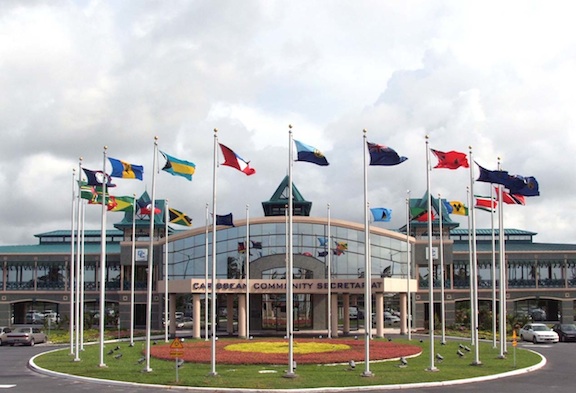Above: CARICOM headquarters in Guyana
By the Caribbean Journal staff
CARICOM is “concerned” by the recent violent developments in Venezuela, the regional body said in a statement issued on Tuesday.
Student-led protests over social and economic conditions in the country have led to violent confrontations, including the deaths of three people so far.
On Tuesday, Opposition Leader Leopoldo Lopez was arrested. That came one day after Venezuela’s government declared three American consular officers “personae non gratae” and gave them 48 hours to leave the country, alleging US involvement in the protests.
That charge was rejected by the US, which accused the Venezuelan government of frequently trying to “distract from its own actions by blaming the United States or other members of the international community for events inside Venezuela.”
“The Caribbean Community is concerned by the confrontations which have taken place in the Bolivarian Republic of Venezuela over the past few days in the course of demonstrations,” CARICOM said. “CARICOM deplores the deaths of three persons arising from the resulting acts of violence.”
The regional body said it was calling for “respect for the democratically elected Government of the Bolivarian Republic.”
“In all democracies, citizens have the right to air their views and differences, however, this must be done within the constitutional framework and not through violent demonstrations,” CARICOM said. “No democratic society can reasonably pursue disorder or any unwarranted subversion of democratic institutions.”
The regional body said it was urging all parties to “take the necessary steps to refrain from any further action that would hinder a peaceful resolution of the differences and a return to peace and calm in the country.”
In a similar statement, the Organization of American States warned that new protests “could lead to more acts of violence that would only further separate the positions of the government and the opposition and polarize to an even greater degree the sensitive political moment the South American country is going through.”
